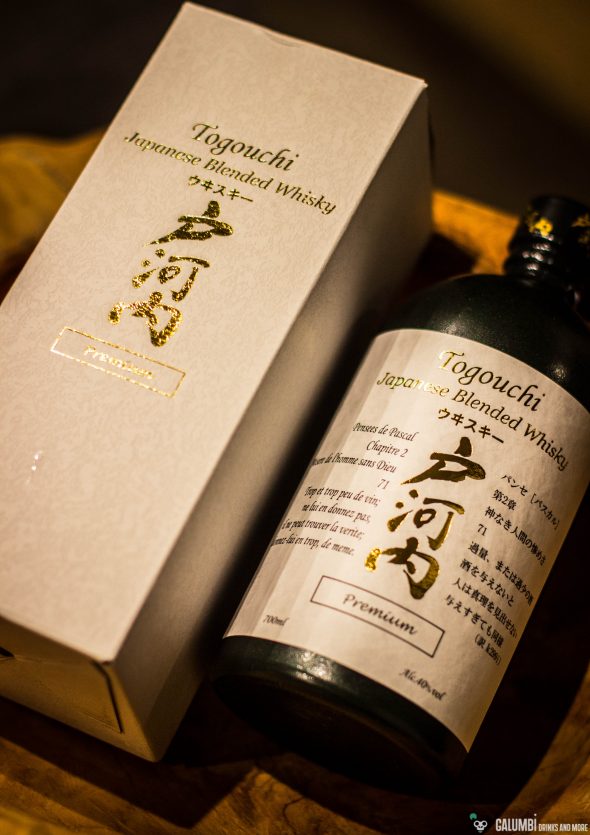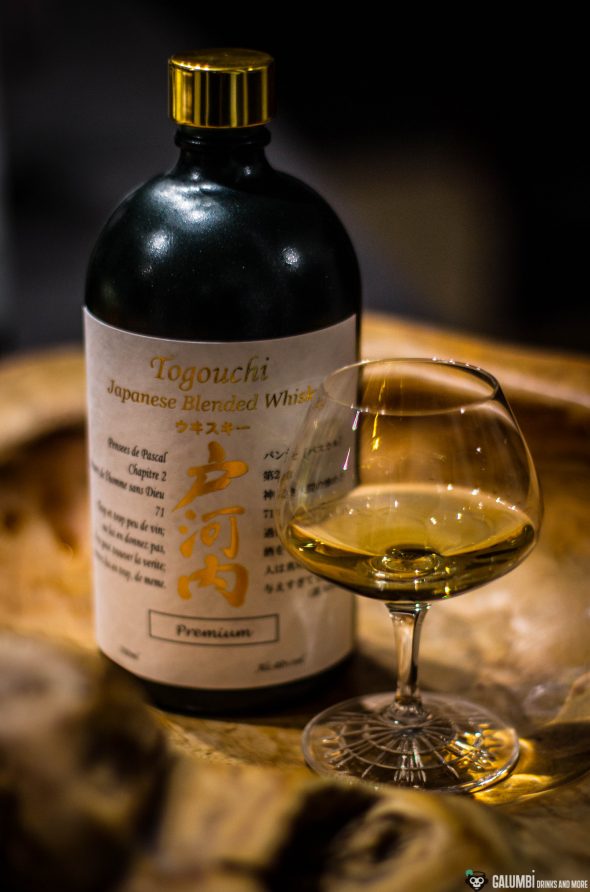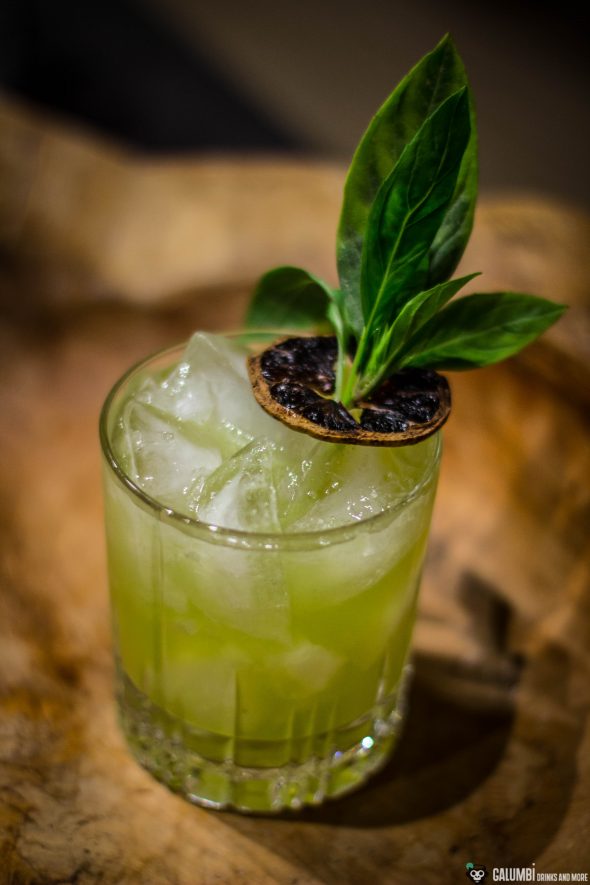
The days when Japanese whisky was still considered an insider tip are long gone. Rather, “Japanese whisky” has risen to become its own premium brand, so to speak, and “made in Japan” has become a firm sales guarantee. Well, also the Chugoku Jozo distillery near Hiroshima benefits from this, having already expanded its product range in the 1990s to include whisky besides their traditional focus on Shochu. However, not everything here is as it seems. (provided test product)*

Because, believe it or not, the whisky produced in the Chugoku Jozo distillery is not actually made there. And it’s even not really Japanese whisky. How can that be? Well, from a strictly legal point of view, I may have put my head above the parapet. Because the declaration on the bottle which this article is about is absolutely waterproof from a legal point of view. However, the Togouchi Japanese Blended Whisky “Premium” was only “blended” at the Chugoku Jozo distillery – and not distilled there. In fact, this distillery does not distil its own whisky at all, but imports finished whisky from abroad instead, blends it and lets it mature again in barrels stored in a former railway tunnel. This is also what happened to the Togouchi Japanese Blended Whisky: It consists of an eight-year-old Scottish malt and a Canadian Grain Whisky without any indication of age. So it is no longer a pure malt whisky (Blended or Vatted Malt). These two whiskies were finally matured in former sherry barrels for five years after the blending. Bottled with 40% vol. in a quite attractively designed bottle and with a price of usually less than 40€, this is of course quite appealing.
But how does this not so Japanese Japanese taste like?

Tasting Notes:
Aroma: This Japanese blend is characterised by a very light, almost volatile aroma. The typical character of grain whisky cannot be ignored. There are no strong notes of roasted grain here, but rather light cereals, I almost have to think of puffed rice. Grass notes that remind me a little of Żubrówka mix with a light vanilla and some cotton candy. In the background there are light fruit notes of apples or pears, which I would ascribe above all to the Scottish part in the Blend and a minimal smoke.
Taste: On the palate, the Togouchi Japanese Blended Whisky clearly turns out less restrained. A certain amount of smoke is present here from the beginning, albeit a rather light one. In addition herbal notes, a nuance of pear and some caramel.
Finish: short, light smoke and spices, but rather one-dimensional.
Ok, this is not the best whisky I’ve ever tried (and it’s also not close). Nevertheless, that doesn’t make it a bad whisky either. I’d describe it as a relatively solid blend with a light aroma profile – if that’s what you’re looking for! In a cocktail, I had the idea to use it in a Basil Smash. If you think I must have missed a point because a Basil Smash is a gin cocktail, I can reassure you: After all, it’s a Thai Basil Whisky Smash. And it is also very clear to me that Thailand and Japan are two completely different cultural areas, so I would like to make it clear from the outset that I didn’t have any kind of Eurocentric-jovial “Asia cocktail” in mind. No, it’s simply a matter of taste: the particularly spicy and intense Thai basil simply harmonises very well with the Togouchi Japanese Blended Whisky, if you don’t believe it, you should try it!


Recipe “Thai Basil Whisky Smash”:
6 cl Togouchi Japanese Blended Whisky
3 cl lemon juice
2 cl sugar syrup
a handful of fresh Thai basil
Preparation: Lightly press the basil into the shaker with your muddler without shredding it. Shake vigorously with the remaining ingredients and fresh ice. Finally double-strain into a glass filled with fresh ice.
Glass: Tumbler
Garnish: Thai basil

Buying sources: At specialized retailers or online, for example at Conalco.
*The bottle for this review was provided to me by the Conalco Spirituosen UG. The fact that this product has been sent to me free of charge for editorial purposes does not – in any way – imply any influence on the content of this article or my rating. On the contrary, it is always an indispensable condition for me to be able to review without any external influence.

Pingback: Ryoma Rhum Japonais & Haru Mai Tai (春マイタイ) - Galumbi